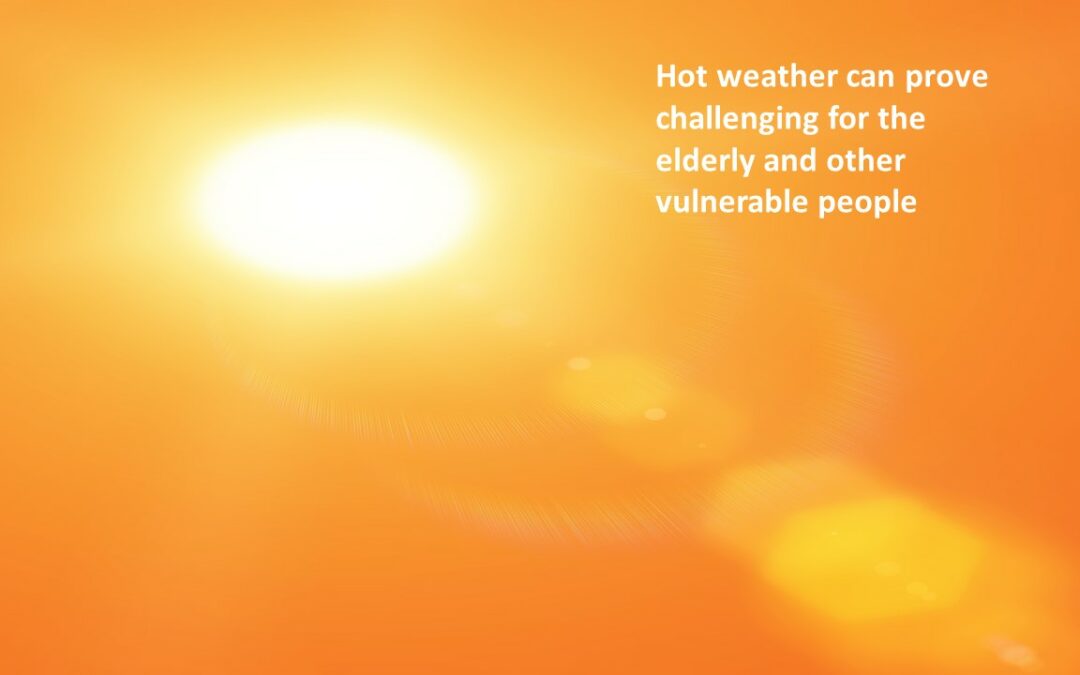In the UK a period of hot weather is declared a heatwave if the temperature is greater than 25oC for more than one day. Notably during a heatwave, the night time temperatures also stay high. If you care for elderly or other vulnerable people, you should have in place a policy which covers your strategies for managing heatwaves.
All care staff should be alert to these issues when the weather is particularly hot and should take measures to help service users stay cool, safe and hydrated including:

- Dressing in light loose fitting clothes, e.g. cotton or linen
- Offering frequent drinks
- Offering ice and iced drinks
- Replacing salts, e.g. with crisps and bananas
- Using a fluid chart monitor intake
- Monitoring temperature, pulse and blood pressures
- Offering cool baths and showers
- Closing doors and windows and using the air conditioning to cool the house down.
- Ensuring a summer menu is offered with cold foods, e.g. salad.
There are many other strategies which can help with keeping people cool and monitoring their health. Some of these are covered in detail in our Extreme Weather – Service Users Policy.
Remember if a service user becomes unwell through the heat, e.g. they faint, become very lethargic and perhaps start vomiting, cool them rapidly, if they are conscious get some fluids into them and in extreme cases call 999.
